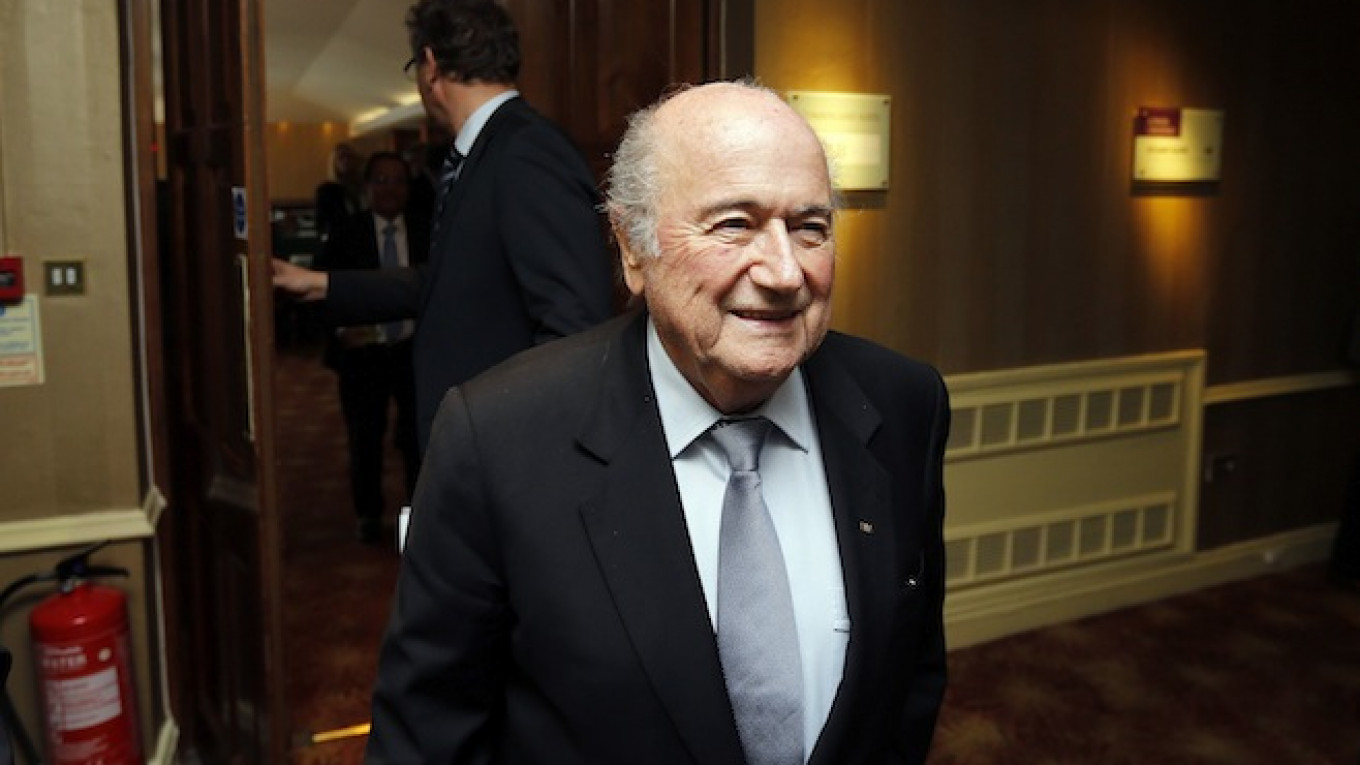HOLYWOOD, Northern Ireland — FIFA President Sepp Blatter is concerned by a study that highlighted the scale of Russian football's racism problem ahead of the 2018 World Cup, warning there "must be some sanctions" if the extremism is not eradicated.
A report produced by the Fare network, an organization that combats discrimination in football, and the Moscow-based SOVA Center showed that Russia is plagued by a racist and far-right extremist fan culture.
"I am aware of the report," Blatter said. "We are concerned, definitely."
Blatter's approach to combatting racism faced criticism before FIFA eventually introduced tougher sanctions in 2013, which can see a team being banned from a tournament for repeat offenses by a club or its fans.
Blatter spoke last July to Russian President Vladimir Putin about making the tackling of racism a priority, but cases have continued to blight the 2018 World Cup host nation, including in high-profile Champions League games.
"Education definitely is required, and if it does not stop then there must be some sanctions," Blatter said on the sidelines of a meeting of football rule makers. "We have started a big education program with them. They are aware of the situation."
The "Time for Action" report on Russian racism, which the AP revealed on Friday, details dozens of cases of discriminatory behavior linked to Russian football over two seasons and warned that "it will be difficult to ensure the safety of visitors" to the World Cup. It followed Tokyo Sexwale, an adviser to FIFA's anti-racism task force, telling the AP recently that black people are "scared of going to Moscow."
The Fare network wants sanctions for discriminatory conduct consistently applied by the Russian football authorities, a plan created to take on far-right groups and diversity actively promoted in host cities.
"Racism is one of the items which is on my agenda on the very top, every day," Blatter said. "But every day unfortunately, we have racist demonstration somewhere in the world and we have to fight that.
"I just have a discussion with Tokyo Sexwale on this matter and we will have somewhere a meeting at the end of March because there must be some ways to have solutions because it cannot [go on]."
A Message from The Moscow Times:
Dear readers,
We are facing unprecedented challenges. Russia's Prosecutor General's Office has designated The Moscow Times as an "undesirable" organization, criminalizing our work and putting our staff at risk of prosecution. This follows our earlier unjust labeling as a "foreign agent."
These actions are direct attempts to silence independent journalism in Russia. The authorities claim our work "discredits the decisions of the Russian leadership." We see things differently: we strive to provide accurate, unbiased reporting on Russia.
We, the journalists of The Moscow Times, refuse to be silenced. But to continue our work, we need your help.
Your support, no matter how small, makes a world of difference. If you can, please support us monthly starting from just $2. It's quick to set up, and every contribution makes a significant impact.
By supporting The Moscow Times, you're defending open, independent journalism in the face of repression. Thank you for standing with us.
Remind me later.






